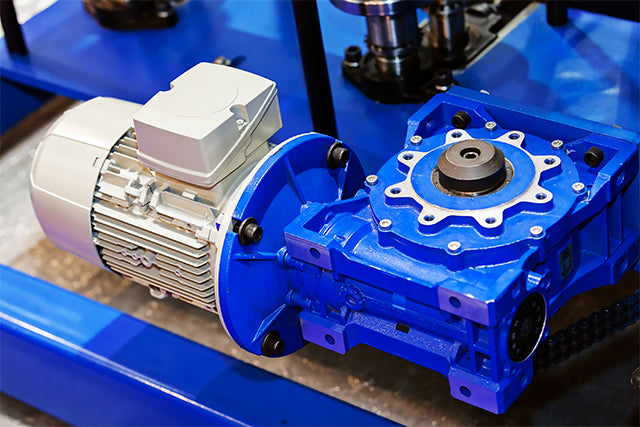
- ←
- →
Dynamic Braking Resistors
ACDC Drives can help to spec the correct size of Brake Resistor for your AC Drive. We stock a wide range of DBR's and can get them to you in most cases the following day.
What are Braking Resistors?
In general, resistors consume heat, and because of this, they can also be used to stop or slow down a mechanical system. This type of resistor is called a dynamic braking resistor, and the process is called dynamic braking. When kinetic energy is transformed back into electrical energy the side effect is that you can slow down or decelerate an electric motor.

This energy will be dissipated by using a power resistor. The brake resistors usually have a high power rating and relatively low ohmic values. The majority of our Brake Resistors have a ceramic core, are fully welded, and are encased in a frame to allow for proper airflow and to keep them a safe distance from other parts.
How Does a DBR Work?
Braking resistors should be used for applications where the motor speed exceeds the speed that is set by the variable frequency drive (VFD) or when fast deceleration is required. They can provide controlled braking at an increased torque. If the rotational velocity of the motor exceeds the synchronous velocity from the VFD, it will act as a generator. The surplus of energy will be fed into the VFD and increase the voltage on the DC bus. The more significant the speed difference between the motor and the drive, the more energy will be fed back.
 It is important to size a braking resistor correctly. The lower the ohmic value of a resistor, the faster it can stop the motor and the more heat it generates. To compensate for this, the resistor must be larger or use a heat sink. The designer calculates the power rating of the resistor to stay under the temperature limits during braking. The resistance range is usually limited with a minimal value (to prevent overcurrent) and a maximum value (for a low power dissipation capability).
It is important to size a braking resistor correctly. The lower the ohmic value of a resistor, the faster it can stop the motor and the more heat it generates. To compensate for this, the resistor must be larger or use a heat sink. The designer calculates the power rating of the resistor to stay under the temperature limits during braking. The resistance range is usually limited with a minimal value (to prevent overcurrent) and a maximum value (for a low power dissipation capability).
What Are The Advantages of a DBR?
Advantages of dynamic braking resistors over friction braking:
- Lower wear of components.
- Control motor voltage within safe levels.
- Faster braking of AC and DC motors.
- Less service required and higher reliability.












